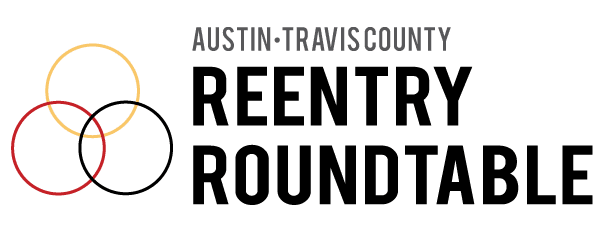Laura Sovine, Past Chair, Austin/Travis County Reentry Roundtable Planning Council
Director of Operations, Austin Recovery
What brought you to this work?
While I was in graduate school to be a therapist, my mom married a man with two sons in prison; one was incarcerated in Georgia and the other was in Huntsville, Texas. My mom and step-dad asked for my help because the step-brother in Huntsville was having mental health challenges. My response was that surely there was help available at the prison; there were probably many options and mental health care available for him, but as we researched the situation, we found out that was not the case. My step-brother and I were the same age, our birthdays were only two days apart. I began to write him and then visit him in prison. I had been a pretty privileged and sheltered kid, so to know someone personally impacted was really a wake-up call for me. We wrote a paper together on prison gangs during his incarceration. I began to take more classes that related to that topic and then applied for an internship at the federal prison, where I fell in love with the work. Sitting there in those groups with clients who were either addicts or big-time dealers, I would hear very shocking things in terms of the amount of grief and trauma that these men had experienced both in that lifestyle but also as children growing up in poverty. I began to see how unjust the whole thing was and how unlikely it was for these offenders to be seen as victims.
Why is doing reentry work in Texas challenging?
Part of the problem is that if you look at what works, at evidence-based practices, the literature says that we need to be working with folks six to nine months before they go home in intensive programming. My experience is with people who are in state jail who are at high risk of recidivism who are typically at risk for chronic homelessness and chronic addiction. Those things aren’t quick fixes. It isn’t “go in have a meeting and knock down some barriers on the outside.” It requires intense therapy and treatment and – most importantly – building relationships with people. Those relationships need to start on the inside with peers and community-based social and mental health workers. The way our system in Texas is set up, it is almost impossible to do that because people are generally locked up so far away from home. It might be different if we had a really small state. There isn’t currently an effective way to manage people going home to communities across Texas as a statewide effort.
What is your vision for the future of reentry in Texas and Travis County?
The first part of my vision is that more people would go into [substance use] treatment in the first place, because the solution to a massive public health problem is treatment and not incarceration. Once that happens, the prison population would be reduced to a more manageable level. Then if there are those who have to go to prison, they could be moved closer to home so that social workers and the community can interact and actually do something more restorative. Healing the whole community and addressing how actions have impacted the families and community has to be done on a small scale. It can’t be done through a massive deployment of resources across the state. It has to be done on a personal level.

